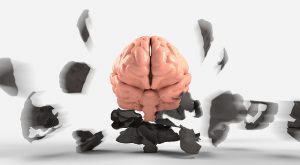Though addiction may be spurred in a variety of ways, there are a number of common links. These can be depression, familial losses, a divorce, feeling trapped in life… the list goes on. Some may wonder, however, why and how does addiction really and logically happen?
As with any medical condition or disease, there is always scientific reasoning behind it. What genetic links are there to these conditions? Or perhaps age, race, and even gender? What factors apply, and what chemicals are involved? Many different parts of the body play roles in different types of addiction.
Over many years of research and studies in drugs, there are a variety of answers. Some aspects of drug and alcohol abuse remain a mystery, but much has also been discovered.
Addiction as a Medical Condition
A common concept that some outsiders fail to comprehend is that addiction is a disease. Many people assume that addiction is a choice and that addicts have full voluntary control of their problems.
A disease is a “quality, habit, or disposition” that can adversely affect a person, their organs, or the people around them. When you develop a dependence on drugs, the brain’s functions alter fundamentally. Addiction changes the psychological needs of the brain, altering it to compulsively use and need drugs on a regular basis.
Both addicts and their families may also fail to realize that addiction is not a truly curable disease. It is a chronic illness that can improve or worsen, depending on the approach. Rehabilitation, therapy, and sobriety are all methods that can help mitigate the drawbacks of addiction.
How Addiction Affects the Brain
To understand how drug and alcohol addiction can affect the brain, we must understand how the brain itself works. The human brain handles different functions, thoughts, and feelings in multiple segments. Drugs affect the brain’s reward system, fulfilled by necessities such as food and wants such as affection and gifts.
This part of the brain is known as the nucleus accumbens, which receives signals from the neurons in your brain. When these neurons release dopamine, it communicates satisfaction and rewarding emotions that motivate your behaviors.
As a person abuses drugs, the nucleus accumbens becomes more accustomed to greater amounts of dopamine. This is why withdrawal effects can be so strong when an addict tries to stop taking drugs. In a sense, you are starving the brain of something it is now wired to think it needs. This makes finding substitutes in rehabilitation crucial to maintaining a sense of happiness for both your mental and physical health.
The Causes of Addiction
Unlike most diseases, addiction is not an illness you catch from other people. It is a medical condition that develops under certain circumstances, though causes vary from person to person.
In research, scientists have narrowed down the cause of addiction to three main factors: genetics, development, and environment. A person who has a family history of drug abuse will be more susceptible to addiction than other people. The exact details and genetic factors of addiction, however, are still unknown.
Development relies on a person’s personal history with drugs. If you tried or even abused drugs at a younger age, your brain may develop a dependence on drugs. Introducing drugs during the brain’s most crucial development periods—which are ongoing up until our mid-20’s—can change and hinder its development.

If you or a loved one is struggling with drug or alcohol addiction, contact a local Treatment & Rehab alternative in Tennessee. You might be interested in Discovery Place’s own treatment center alternatives, such as our 30 Day Residential Addiction Alternative Recovery Program or our Long Term Alternative Recovery Program in Burns, Tennessee. Call us for a free consultation at 1-800-725-0922.

